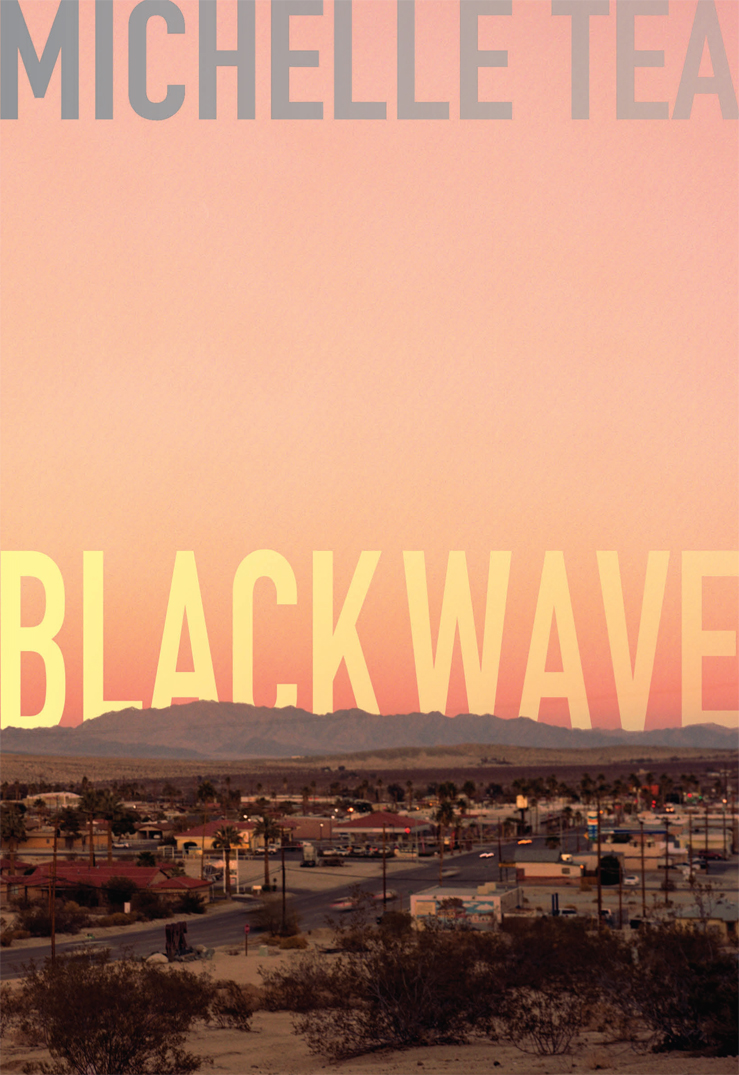
Black Wave
کتاب های مرتبط
- اطلاعات
- نقد و بررسی
- دیدگاه کاربران
نقد و بررسی

July 4, 2016
In the first half of Tea’s (Valencia) autobiographical latest, set in San Francisco’s Mission District in 1999, sex and drugs are the primary occupations of the protagonist, also named Michelle. As Michelle gets drunk one evening, like most evenings, she watches the sunset from the doorway of the bar: “The hue of the sky was the visual equivalent of the alcohol settling into her body—dusky blue shot with gold and darkening to navy.” In Tea’s skillfully loose, lusty prose, Michelle is both vulnerable and brash, blitzing through lovers and bags of heroin, terrified but also convinced of her own invincibility. This tension emphasizes the reckless force of youth as well as the waning freedom of life before cell phones and the full-blown Internet, making this book an important portrait of the late ’90s. The second half of the novel, however, in which Michelle moves to L.A., morphs messily into a metacognitive excavation of what it means to write, rewrite, and revise one’s own story into art. This section of the book, which also plays with chronology, the approaching apocalypse, and the fabrication or conflation of characters, is less successful, in part because it ultimately feels less honest. The one exception, however, is the appearance of Matt Dillon in the used bookstore where Michelle works, a perfect, hilarious celebrity interaction subplot, anchoring Tea back down to the awkward dialogue and fierce desire she does so well.

Starred review from July 1, 2016
Churning through lovers, baggies, and bottles, writer Michelle Leduski runs for LA with the end of the world on her heels.In 1999, San Francisco's Mission District is rapidly gentrifying. The gritty glittering landscape of artists and radicals is gradually being supplanted by the sterile manufactured cool favored by dot-com boomers who spread like a fungus, displacing the neighborhood's previous crop of displacers, to which Michelle belongs, "a tribe bound not by ethnicity but by other things--desire, art, sex, poverty, politics." In what seems at first like a lightly fictionalized memoir, Tea (How to Grow Up, 2015, etc.) traverses ground familiar to readers of her previous work: booze, drugs, sex, protracted adolescence, and '90s queer culture. But as time destabilizes, we're irresistibly sucked into an alternate universe where the byproducts of modern living cause illness and alienation, the natural world has been all but eradicated, poisonous mists roll off the Pacific, and compost-powered cars trace the roads. Michelle leaves the Mission and attempts to write about a relationship ruined through the slow decay of self-neglect but is constantly plagued by a memoirist's fears of overexposing and harming those around her. While reality expands and collapses like a gasping lung and the Earth crumbles around her, Michelle digs at the emotional truth of a loss that feels like the end of everything. But, rather than succumb to apocalyptic depression as spectacles of hysteria and petty distractions continue to swirl around her, Michelle claws her way out of her spiral of self-destruction to face the end, clear-minded and resolute. Gliding deftly through issues of addiction and recovery, erasure and assimilation, environmental devastation and mass delusion about our own pernicious tendencies, this is a genre- and reality-bending story of quiet triumph for the perennial screw-up and unabashed outsider. A biting, sagacious, and delightfully dark metaliterary novel about finding your way in a world on fire.
COPYRIGHT(2016) Kirkus Reviews, ALL RIGHTS RESERVED.

November 15, 2016
The author of ten books exploring queer culture, pop culture, feminism, and more, plus founder of the literary nonprofit RADAR Productions and cocreator of Sister Spit, Tea makes great literary content from the stuff of her on-the-edge life. This book started as a memoir aimed at examining the end of a long relationship and her sense of finally transitioning to adulthood. Soon, however, it morphed into a closely observed novel starring the hyperkinetic, probing Michelle, who moves from major drug taking at a San Francisco bar to a lucid grappling with life and love. It takes a moment to adjust to third-person Michelle-as-protagonist, but the pleasures of the prose, which is energized and exuberant (one might even say goofy), are the reward. VERDICT Tea paints a terrific portrait, but her great gift is how she makes readers look more closely at themselves.
Copyright 2016 Library Journal, LLC Used with permission.

























دیدگاه کاربران